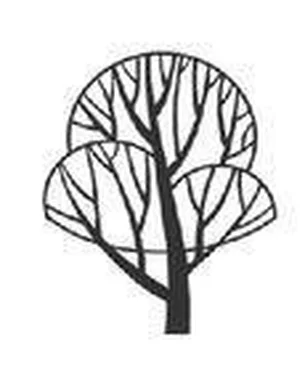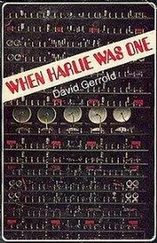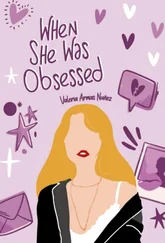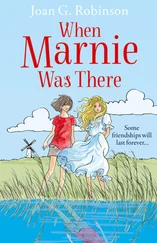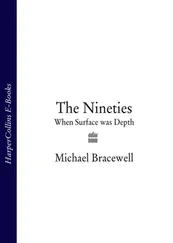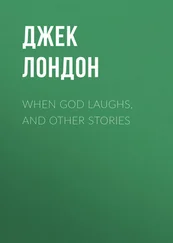Winman, Sarah - When God Was a Rabbit
Здесь есть возможность читать онлайн «Winman, Sarah - When God Was a Rabbit» весь текст электронной книги совершенно бесплатно (целиком полную версию без сокращений). В некоторых случаях можно слушать аудио, скачать через торрент в формате fb2 и присутствует краткое содержание. Жанр: Старинная литература, на английском языке. Описание произведения, (предисловие) а так же отзывы посетителей доступны на портале библиотеки ЛибКат.
- Название:When God Was a Rabbit
- Автор:
- Жанр:
- Год:неизвестен
- ISBN:нет данных
- Рейтинг книги:4 / 5. Голосов: 1
-
Избранное:Добавить в избранное
- Отзывы:
-
Ваша оценка:
- 80
- 1
- 2
- 3
- 4
- 5
When God Was a Rabbit: краткое содержание, описание и аннотация
Предлагаем к чтению аннотацию, описание, краткое содержание или предисловие (зависит от того, что написал сам автор книги «When God Was a Rabbit»). Если вы не нашли необходимую информацию о книге — напишите в комментариях, мы постараемся отыскать её.
When God Was a Rabbit — читать онлайн бесплатно полную книгу (весь текст) целиком
Ниже представлен текст книги, разбитый по страницам. Система сохранения места последней прочитанной страницы, позволяет с удобством читать онлайн бесплатно книгу «When God Was a Rabbit», без необходимости каждый раз заново искать на чём Вы остановились. Поставьте закладку, и сможете в любой момент перейти на страницу, на которой закончили чтение.
Интервал:
Закладка:
‘How long for?’ she asked.
‘As long as it takes,’ I said, repeating my mother’s dramatic, final words; the words I’d overheard her say, as she closed the front door defiantly in my father’s face.
I was quite happy in this new life, just Jenny Penny and me, and we would go and sit in the bottom shed, a welcome quiet away from the chaos and unhappiness that being rich had somehow instilled. My brother had made it comfortable inside, and there was a small electric heater that god always liked to sit in front of whilst his fur cooked and gave off a sour smell. I sat on the fraying armchair that used to be in our lounge, and offered Jenny Penny the old wooden wine crate. I pretended to order vodka martinis from our invisible waiter: the drink of the rich, my brother used to say, the drink of the sophisticate. The drink that would one day mark the start of my eighteenth birthday celebrations.
‘Cheers!’ I said and took a sip.
‘Cheers,’ she said.
‘What’s the matter?’
‘Nothing,’ she said.
‘You can tell me anything, you know,’ I said.
‘I know,’ she said, and pretended to finish off her martini.
‘What is it?’ I asked her again.
She looked more pensive than usual.
‘What’ll happen to me if your mum and dad split up for good? Who will I go with?’ she asked.
What could I say? I hadn’t even made the choice myself. There were pros and cons to both my parents and my list was far from complete. I handed her god instead, who was starting to give off his rather pungent scent. He comforted her instantly, and tolerated the harsh, abrasive groping of her chubby fingers, as tufts of his fur fell carelessly to the ground.
‘Ouch,’ he said, ‘not a-bloody-gain. Arse. Ouch.’
I bent down to pick up my glass and as I did, I noticed a magazine part hidden under the chair. I knew what it was before I opened it – could tell by the cover – but I opened it nevertheless, and ran my eyes over an assorted display of nude bodies doing various things with their private parts. I didn’t know vaginas and penises were used in those ways, but by that age, I’d understood that people had a fondness for touching them.
‘Look at that,’ I said to Jenny Penny as I held the picture in front of her face. But she didn’t look. Or laugh. Or say anything actually. She did something quite unexpected. She burst into tears and ran.
I found her huddled in the shadow of the almond tree, halfway down the alley where we’d once found a dead cat, poisoned probably. She looked scrappy and orphaned in the twilight, surrounded by the scent of urine and shit as it conspired with the warm breeze. Everyone used the alleyway as a toilet or a dumping ground for the no-longer-useful. I sat down beside her and moved her hair away from her mouth, away from her pale brow.
‘I’m going to run away,’ she said.
‘Where to?’
‘Atlantis,’ she said.
‘Where’s that?’
‘No one really knows where it is,’ she said, ‘but I’ll find it and then I’ll go and then they’ll worry,’ and she looked at me and her dark eyes melted into the deep, shadowed sockets.
‘Come with me,’ she pleaded.
‘OK, but not before next week,’ I said (knowing that I had a dental appointment), and she agreed, and we leant our backs against the fence and inhaled the smell of its recent creosote coating. Jenny Penny looked calmer.
‘Atlantis is special, Elly. I heard about it recently. It was sunk by a huge tidal wave quite a few years ago and it’s a magic place with magic people. A lost civilisation probably still alive,’ she said. I sat transfixed by the surety in her voice; it was hypnotic; otherworldly even. Made everything possible.
‘There are lovely gardens and libraries and universities, and everyone is clever and beautiful, and they are peaceful and help each other and they have special powers and know the mysteries of the Cosmos. We can do anything there, be anything, Elly. It’s our city and we’ll be really happy.’
‘And all we have to do is find it?’ I said.
‘That’s all,’ she said, as if it were the easiest thing in the world to do. And I must have looked doubtful because it was at that moment that she suddenly said, ‘Watch this!’ and performed the magic trick of pulling the fifty-pence piece out of her plump arm.
‘Here,’ she said, handing me the coin.
I held it in my hand. It was bloody and warm, as if of her essence, and I half expected it to disappear, to simply melt into the weirdness of the night.
‘Now you can trust me,’ she said.
And I said I did, as I looked down at the strange coin with the even stranger date.
My mother returned eight days later, more refreshed than when she’d had her lump removed. Nancy had taken her to Paris, where they’d stayed in St-Germain and met Gérard Dépardieu. She arrived with bags and clothes and new make-up, and looked ten years younger, and when she stood in front of my father and said, ‘Well?’ we knew immediately that he’d lost. He said nothing, and after that afternoon we never saw the car again. In fact, we were never allowed to talk about the car again without my father falling into an abyss of shame and a sudden selfinduced amnesia.
My parents were writing Christmas cards together in the dining room and, bored by my own company and lack of my brother’s, I decided to go to the shed instead and look at the remaining pages of the magazine I’d carefully put back for another day.
The garden was dark and shadows of trees bent towards me in the breeze. There were bright hard berries on the holly and everyone said it would snow soon. The anticipation of snow was as good as the reality at that age. My father had made me a new sledge in preparation and I could see it propped up by the side of the shed, its metal runners waxed and shining ready for the glide. As I passed by the shed window, I saw flickering torchlight within. I picked up a stray cricket stump and slowly made my way to the door. It was hard to open the door quietly because it stuck halfway on the concrete step, and so instead I pulled the door quickly towards me and saw the fractured image of Charlie on his knees in front of my shivering, naked brother. My brother’s hand caressing his hair.
I ran. Not because I was scared, not at all – I’d seen that interaction in the magazine; a woman was doing it that time and maybe someone was watching, though I couldn’t be sure – but I ran because I’d trespassed on their clandestine world, and I ran because I realised it was a world that no longer held a place for me.
I sat in my room and watched the clock rotate a slow languid hour as the carols from downstairs grew loud. My mother was singing along as if she was in a choir; being rich made her sing more confidently. I was asleep when they came in. My brother woke me up; he only did that when it was important. Budge up, they said, and they both squeezed into my bed, bringing the cold from outside.
‘You can’t tell anyone,’ they said.
‘I won’t,’ I said.
‘Promise?’
‘Promise,’ I said, and I told my brother I’d seen it all before anyway, in the magazines in the shed. He said they weren’t his and together we said, ‘Oh,’ as the awful realisation dawned on us that they were probably the quiet consolation of our father. Or our mother. Or maybe both. Maybe the shed had been the scene of the amorous lead-up to my conception, and I suddenly felt guilty about the uncontrollable urges that hid in the tree of my genealogy.
‘I want to go to sleep now,’ I said, and they kissed me good night and crept away.
In the darkness I thought about the images, and about Mr Golan, and I felt old. Maybe this was what my father meant when he said that Nancy had grown up too quickly; I suddenly started to understand.
Читать дальшеИнтервал:
Закладка:
Похожие книги на «When God Was a Rabbit»
Представляем Вашему вниманию похожие книги на «When God Was a Rabbit» списком для выбора. Мы отобрали схожую по названию и смыслу литературу в надежде предоставить читателям больше вариантов отыскать новые, интересные, ещё непрочитанные произведения.
Обсуждение, отзывы о книге «When God Was a Rabbit» и просто собственные мнения читателей. Оставьте ваши комментарии, напишите, что Вы думаете о произведении, его смысле или главных героях. Укажите что конкретно понравилось, а что нет, и почему Вы так считаете.
